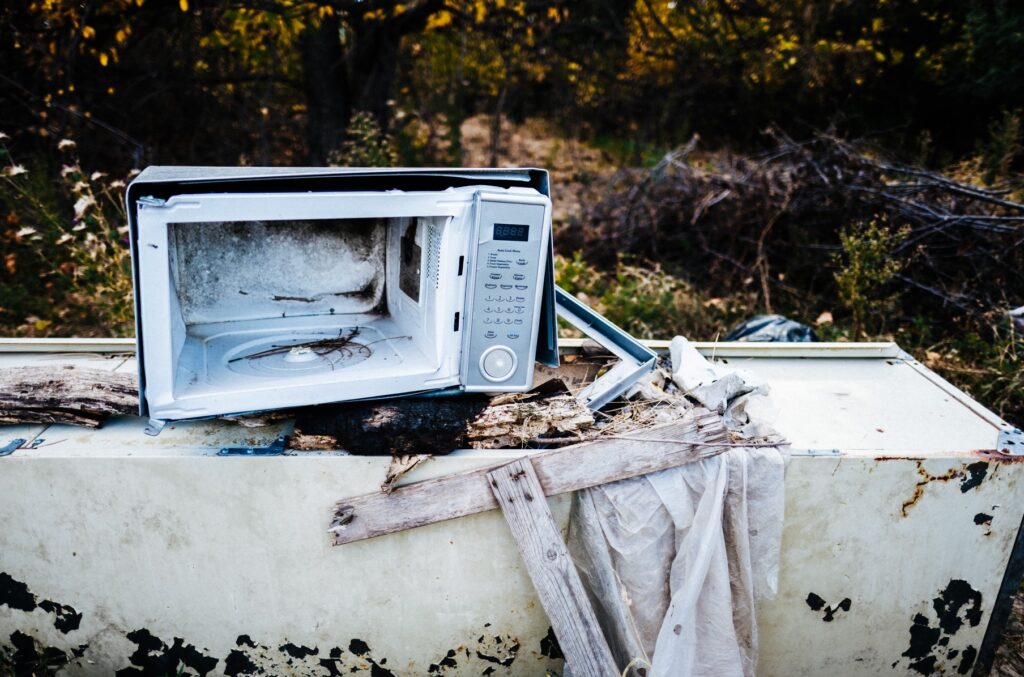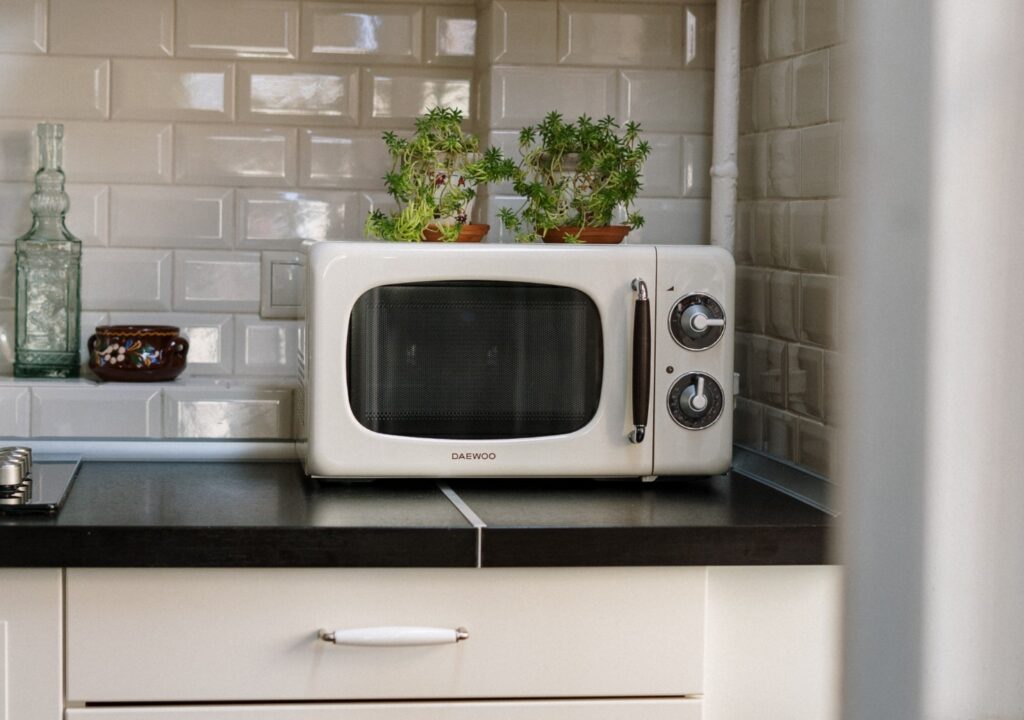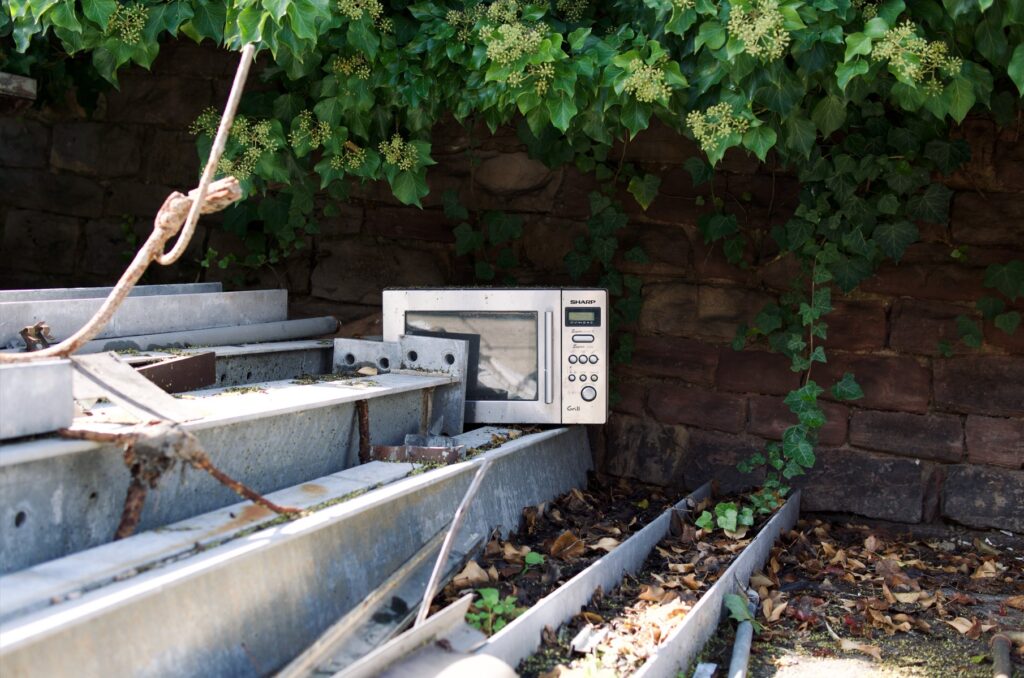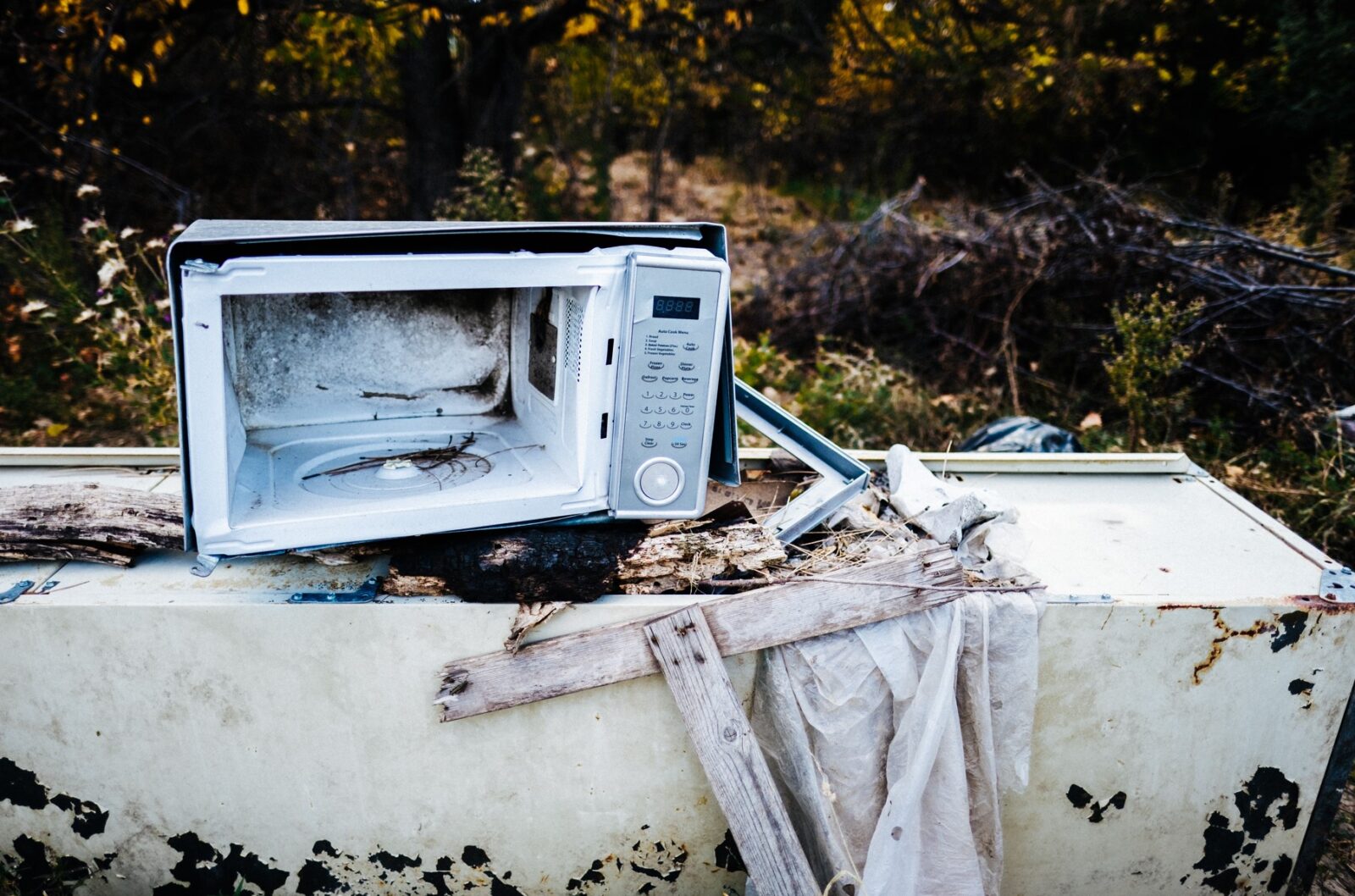
It’s time to say goodbye to your old microwave and welcome something new. But what do you do with the old one? How to dispose of a microwave safely, including where to do it, what not to do and how to avoid potential hazards. Disposing of a microwave can be tricky, so it’s important to take the correct steps to ensure your safety and the safety of those around you. Here’s a guide on how to dispose of a microwave safely and responsibly.
What are Microwaves Made Of?
Microwaves are a type of radiation that is used in a variety of consumer and industrial applications. They are a form of electromagnetic radiation with wavelengths between radio waves and infrared light. Microwaves are used to heat food, communicate, and even generate electricity.
In order to understand what microwaves are made of, we must first look at the components of a microwave oven. At the heart of a microwave oven is a device called a magnetron, which is a vacuum tube that produces high-frequency microwaves. These microwaves are created by the movement of electrons in a metal cavity. This cavity is then surrounded by several layers of metal, which serve to create a protective shield against radiation. Old microwave disposal is difficult considered e-waste is dangerous.
The metal shielding around the magnetron also contains several other components, such as a power source, antenna, and control circuitry. All of these components work together to create microwaves within the oven. Broke college students and people moving in places consider microwaves that make better for the environment.

Ways to Dispose of a Microwave Safely
How to dispose of a microwave oven right? We understand how difficult it can be to get rid of an old or broken microwave.
- You cannot have a broken microwave in the trash when your microwave just died.
- Take your microwave off of your hands.
- When disposing of a microwave, you should be aware of the safety risks associated with it.
- You cannot have a broken microwave.
- Microwave ovens can in fact leak radiation.
- Microwaves are considered hazardous waste, and some states have specific laws on how microwaves should be gotten rid of.
1. Donate microwave oven
Donating your old microwave to a charity can be a great way to keep it out of the landfill. We’re recycling the stuff. Many stores and charities will take working microwaves and either repair them and sell them or use them to help others. Use stores and charities with help quick internet search.
2. Take it to an Electronic Waste Recycling Center
E-waste recycling centers accept most electronic components and appliances, including microwaves. Are you looking for parts to improve other microwaves? Has your regular garbage been piling up for a specific period? They will properly dispose of the microwave and make sure that any hazardous materials are dumped of according to local regulations. Recycling program. It’s easier than you think!
3. Take it to an Electronic Retail Store
Many electronic stores will take and provide drop-off programs and repair services for old and malfunctioning microwaves. They will accept microwaves as part of their drop-off program.
4. Use the Municipal Waste Center or Your Local Trash Pick-up Company
Your local municipal waste center or trash pick-up company may accept old microwaves and if it is broken. Make sure to check your local regulations to make sure that it is allowed. Because you can get into legal trouble. Confirm that they will accept the rest of your trash.
Municipalities that provide pickup service take payment. First to confirm inefficient appliances. Many microwave newer models are harmless. There are regular trash and household dumpster. Household trash can consists of electrical components. Be careful might be tempted to toss electrical components.

5. Take it to a Repair Shop
If your microwave is still working, you can take it to an appliance repair shop and have them either repair it and sell. There is local appliance repair. Why will you need to buy a new microwave? You need to use a microwave that is still working. Take the microwave and throw a microwave. The microwave still works. Retailers have e-waste drop-off boxes.
6. Manufacturer Take-Back Programs
Many manufacturers have take-back programs for their products, including microwaves. Contact your local manufacturer for more information. Take your microwave and go to the shop.
7. Drop it off at the Local Garbage Center or Landfill
Depending on the local regulations, you may be able to drop off your old microwave at the local garbage center or landfill. There are e-waste drop-off locations and household hazardous waste. It can be a nearby county or city. However, this is not always the best option, as microwaves are considered hazardous waste and may contain hazardous materials.
Many e-waste drop-off locations offer recycling options. If you’re looking for a safe and secure way to dispose of your e-waste, a drop-off is often the best bet. With the right research and preparation, you can be sure to find a reliable and responsible e-waste nearest drop-off location that will help protect the environment and keep hazardous materials out of our water and soil.
8. Sell it by yourself
A lot of the merchandise gets sold to retailers, but a lot of stores will sell direct. Picking up e-waste from commercial customers can be a difficult task, but it can also be beneficial for both the environment and your business. Microwaves are often broken. If your microwave is still working, you can always sell it yourself on sites like Craigslist or Facebook Marketplace. This will help you get the most out of your old appliance and get it off of your hands quickly.
Once you’ve disposed of your microwave, you may want to consider selling any parts that are still usable. This can be done by contacting local appliance repair shops, or by using online resources to list the parts for sale.
No matter what method you choose to dispose of your microwave, it is important to make sure that it is done safely and responsibly. The good news is that there are a few easy ways to dispose of your old electronics without generating any additional waste. From recycling your e-waste to donating it, you can easily get rid of your old electronics without harming the environment.

Potential risks in disposing of microwave
Before disposing of a microwave, it’s important to consider the potential risks associated with doing this. Microwaves contain a variety of chemicals that, when exposed to air, can be hazardous to your health and the environment. Therefore, it’s important to take the necessary precautions when handling and disposing of your microwave.
The best option is to find a local recycling center or a hazardous waste disposal company that can safely dispose of your microwave. It’s important to check with your local council to find out what the specific regulations and procedures are in your area. You also need to make sure that you are disposing of the microwave in the correct manner, as improper disposal can have serious consequences.
Can I put a microwave in the bin?
In some cases, you may be able to put a microwave in the bin. However, this should be done with caution, as microwaves can be a fire hazard and can cause injury if not handled properly. Therefore, it’s important to always ensure that you are disposing of your microwave in the correct manner and that it is safely secured in the correct container.
Can I throw away a microwave in NJ?
In some areas of the United States, including New Jersey, it is illegal to throw away a microwave. Therefore, it’s important to contact your local waste management authorities to find out what the specific regulations are in your area.
When disposing of a microwave, it’s important to exercise caution. Taking apart a microwave can be dangerous, as some components may contain hazardous materials. Similarly, attempting to fix a broken microwave can also be dangerous and should always be done by a professional.
Do Old Microwaves Leak Radiation?
It’s important to note that microwaves can leak radiation, though this is typically only the case if the unit is faulty or damaged. The average lifespan of a microwave is around 10 years, after which it should be replaced.
Conclusion
In recent posts, we have discussed the importance of recycling and how it can help build a more sustainable planet. Recyclers may also want to look into their local utility companies. Freecycle is a great way to pass on items to someone else who may have a use for them. It’s a great way to help the environment, help those in need, and help your local utility company. No matter how you choose microwave pose, you can be sure that you’re doing your part to reduce e-waste.
If you’re looking for a way to dispose of your old microwave, you may want to consider donating or recycling it. Even if the unit is no longer working, it may be possible to donate the microwave to a charity or recycle it through an e-waste recycler.
Different states and counties have different laws about disposing of microwaves, so make sure to check your local regulations before disposing of your microwave. It is also important to make sure to unplug the microwave before attempting to take it apart or dispose of it.
Finally, be sure to properly dispose of any hazardous materials that may be present in your microwave. Dispose of a microwave properly. Take your old microwave and do something. Sure how to dispose you to know now.

